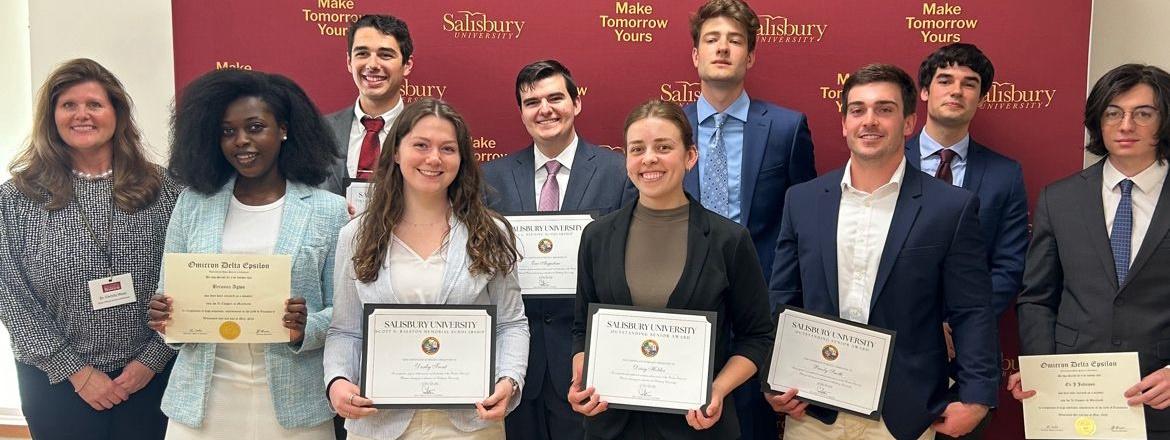
Department of Economics
Economics is a versatile discipline that studies individual and group choices in markets. We teach students how individuals, businesses, and national economies behave, as well as how public policies promote or hinder economic performance. Our graduates work for private industry, the government, and go on to graduate school and law school.
In the economics department, our faculty members are dedicated teachers and accomplished scholars. We have Fulbright scholars (in 2010 and 2023), a Visiting Fellow at Stanford University’s Hoover Institution, a Council on Foreign Relations International Affairs Fellowship winner, and a winner of the USM Board of Regents' Faculty Award for Excellence.
Meet our faculty and staff.
Our Mission and Vision

Meet Jasmine – Economics Major
Find out how the economics major can support your other interests, such as Jasmine’s interest in sustainability.
Our Academic Programs
The department offers an engaging curriculum that is built on a rigorous foundation of economic theory. Our principles classes are open to all 成人抖阴students and satisfy two general education requirements: Principles of Economics (ECON 150) and Principles of Macroeconomics (ECON 212) satisfy the new “Social Issues” category, and Principles of Microeconomics (ECON 211) satisfies the “Social Configurations” category. We also offer a wide variety of relevant applied courses, including game theory, environmental economics, sports economics, money and banking, labor economics, health economics, international trade and finance, and development economics. In our courses, we emphasize hands-on assignments and exercises in which students work with real-world data to sharpen their analytics skills.
The department currently offers two majors: the, and the . For students interested in economics but majoring in a different field, we offer a minor in economics.
Both our Economics (BA) and Business Economics (BS) programs are now classified as . This designation reflects our programs’ emphasis on quantitative analysis, mathematical modeling, and empirical research methods. It prepares our students for career paths in economic analysis, data science, financial analysis, policy advising, consulting, and further graduate studies. This change in classification does not affect the curriculum or degree requirements but will provide our international students with an OPT (Optional Practical Training) extension, allowing them more time to pursue advanced degree programs and gain relevant work experience.
Experiential learning of economic science is fun and exciting! It allows students to learn rigorous economic theory by engaging in activities that real economists perform, such as data analysis and policy making, to make positive societal impact. Our students have enjoyed these learning opportunities and achieved notable accomplishments.
Post-Graduate Placement
For Our Students
-
2 academic programs
-
48 academic research papers recently published by faculty
-
150 STUDENTS INDUCTED INTO ODE ECONomics HONOR SOCIETY